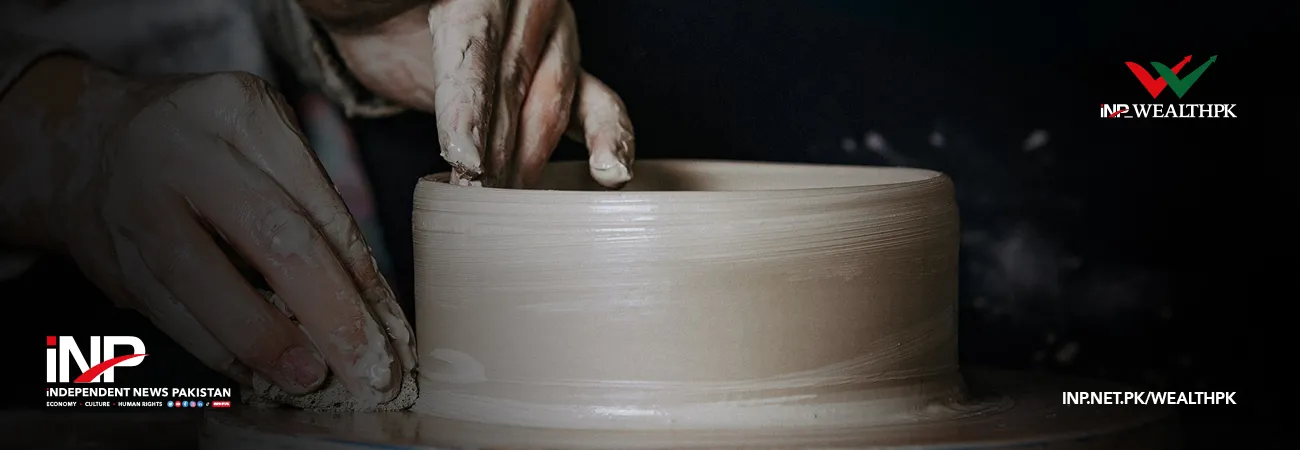INP-WealthPk
Faiza Tehseen
A well-developed ceramics industry is important for the socioeconomic progress of Pakistan as it will not only help fulfil the local domestic and commercial needs but also contribute to exports. “Globally, the demand for ceramics is increasing by the day. Developing this important industrial segment will help create new jobs, and generate robust trade and business activities. It will help communities to earn a sustainable livelihood,” stressed Moazzam Ghurki, president of Pak-China Joint Chamber of Commerce and Industry (PCJCCI), while talking to WealthPK. He said that besides developing the ceramics industry, there was also a need to open ceramic engineering institutes as they were an emerging component of the modern-day ceramic industry.
Moazzam Ghurki pointed out that recently a Chinese delegation held a meeting with PCJCCI members to explore options for investments in the ceramic industry of Pakistan. He said China’s ceramics sector was growing rapidly and playing a great role in the country’s economic growth. He said Chinese industrial city of Zibo also had a smart ceramic industry. “There is much potential in Pakistan’s ceramics industry, but there is a need to introduce modern technology to help produce world-class products.” The PCJCCI president said that Chinese expertise in the ceramics sector was excellent and Pakistan needed to follow its model to develop the industry. Globally, the ceramics market is projected to grow to $101.09 billion at the compound annual growth rate of 3.70% by 2032 from the current $75.59 billion. By promoting the high-tech ceramics industry, Pakistan can get a good international market share.
As a replacement to metal and plastic used in automotive, medical and other sectors, the use of advanced ceramics is increasing. Mostly quality natural raw materials are used to manufacture ceramics, which are abundantly available in Pakistan. Most ceramic products, such as tiles, tableware, glass, lab materials, are produced by using single clay or a mixture of different types of clays, including mineral modifiers like feldspar, and quartz. Both small and large ceramic manufacturing units can be established near these deposits to cut the manufacturing cost. Pakistan imports large quantities of different lab materials and other necessary industrial articles such as high-class ceramics. The indigenous production of ceramic materials will help cut import bills and enable Pakistan to export quality ceramics.
Credit: INP-WealthPk




